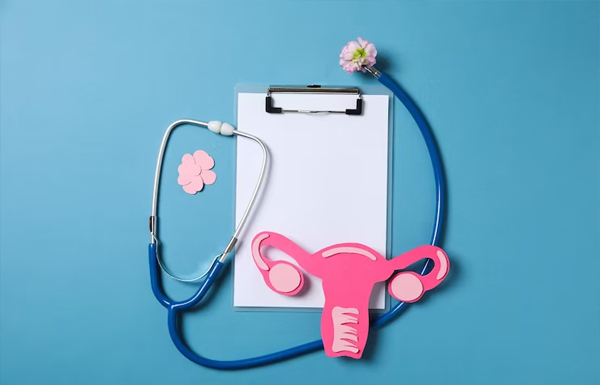Dr. Sankar Dasmahapatra
Laparoscopic Surgery Specialist in Kolkata, India
DGO, MS, Fellowship in Gynaecological Lap Surgery (Sydney -Australia)
Consultant Gynaecologist & Obstetrician
Infertility Specialist & Lapaoscopic Surgeon
DGO, MS, Fellowship in Gynaecological Lap Surgery (Sydney -Australia)
Consultant Gynaecologist & Obstetrician
Infertility Specialist & Lapaoscopic Surgeon
by Dr. Sankar Dasmahapatra

Cervical cancer is cancer that starts in the cells of the cervix. The cervix is the lower, narrow end of the uterus (womb). The cervix connects the uterus to the vagina (birth canal). Cervical cancer usually develops slowly over time.
What is the cause of cervical carcinoma?
Long-lasting infection with certain types of human papillomavirus (HPV) is the main cause of cervical cancer. HPV is a common virus that is passed from one person to another during sex.
What is the early symptom of cervical carcinoma?
Early-stage cervical cancer generally produces no signs or symptoms. Signs and symptoms of more-advanced cervical cancer include: Vaginal bleeding after intercourse, between periods or after menopause. Watery, bloody vaginal discharge that may be heavy and have a foul odor.
What is the survival rate of cervical carcinoma?
When cervical cancer is diagnosed at an early stage, the 5-year relative survival rate is 91%. When cervical cancer is diagnosed after it has spread to nearby tissues, organs, or regional lymph nodes, the 5-year relative survival rate is 60%.
What are the 5 warning signs of cervical cancer?
- Abnormal vaginal bleeding. Many women have the occasional irregular period or spotting, but changes that aren't typical for you could indicate something more serious....
- Unusual discharge....
- Painful sexual intercourse....
- Pain in the pelvic region....
- Complications in bowel movements.
What is the risk factor for cervical carcinoma?
Almost all cervical cancers are caused by HPV. Other things also can increase your risk of cervical cancer. Almost all cervical cancers are caused by human papillomavirus (HPV), a common virus that can be passed from one person to another during sex. There are many types of HPV.
What is the most common symptoms of patient with cervical carcinoma?
Cervical Cancer Symptoms
- vaginal bleeding after sex.
- vaginal bleeding after menopause.
- vaginal bleeding between periods or periods that are heavier or longer than normal.
- vaginal discharge that is watery and has a strong odor or that contains blood.
- pelvic pain or pain during sex.
Tingling, numbness and weakness in the arms, hands, legs or feet. Lack of coordination and difficulty walking. Loss of bladder or bowel control.
What is Stage 4 Cervical Carcinoma?(Cervical Cancer)
In stage IV, cervical cancer has spread beyond the pelvis, or has spread to the lining of the bladder or rectum, or has spread to other parts of the body. Stage IV is subdivided into stages IVA and IVB, based on where the cancer has spread.
Is cervical cancer painful?
Pain from cervical cancer may not feel like much in the early stages of the disease if you feel anything at all. As cancer progresses and spreads to nearby tissues and organs, you may experience pain in your pelvis or have issues urinating. Other people will feel generally unwell, tired or lose their appetite.
What is the first stage of cervical cancer?
Stage 1 means that your cancer is within the neck of the womb (cervix). It hasn't spread to nearby tissues or other organs.
How can I test for cervical cancer at home?
HPV Check is a comfortable and reliable at-home cervical cancer screening test that detects the Human papillomavirus (HPV), the virus that causes cervical cancer. HPV testing is now approved by the NHS as a reliable method of cervical cancer screening.
What is the recovery time for cervical surgery?
You may need to wear a neck brace for a while. Most people can go back to work after 4 to 6 weeks. But it may take a few months to get back to your usual activities. How long it takes depends on what kind of surgery you had and the type of work and other activities you do.
He is one of the best Doctor in Kolkata for treatment of Cervical carcinoma.